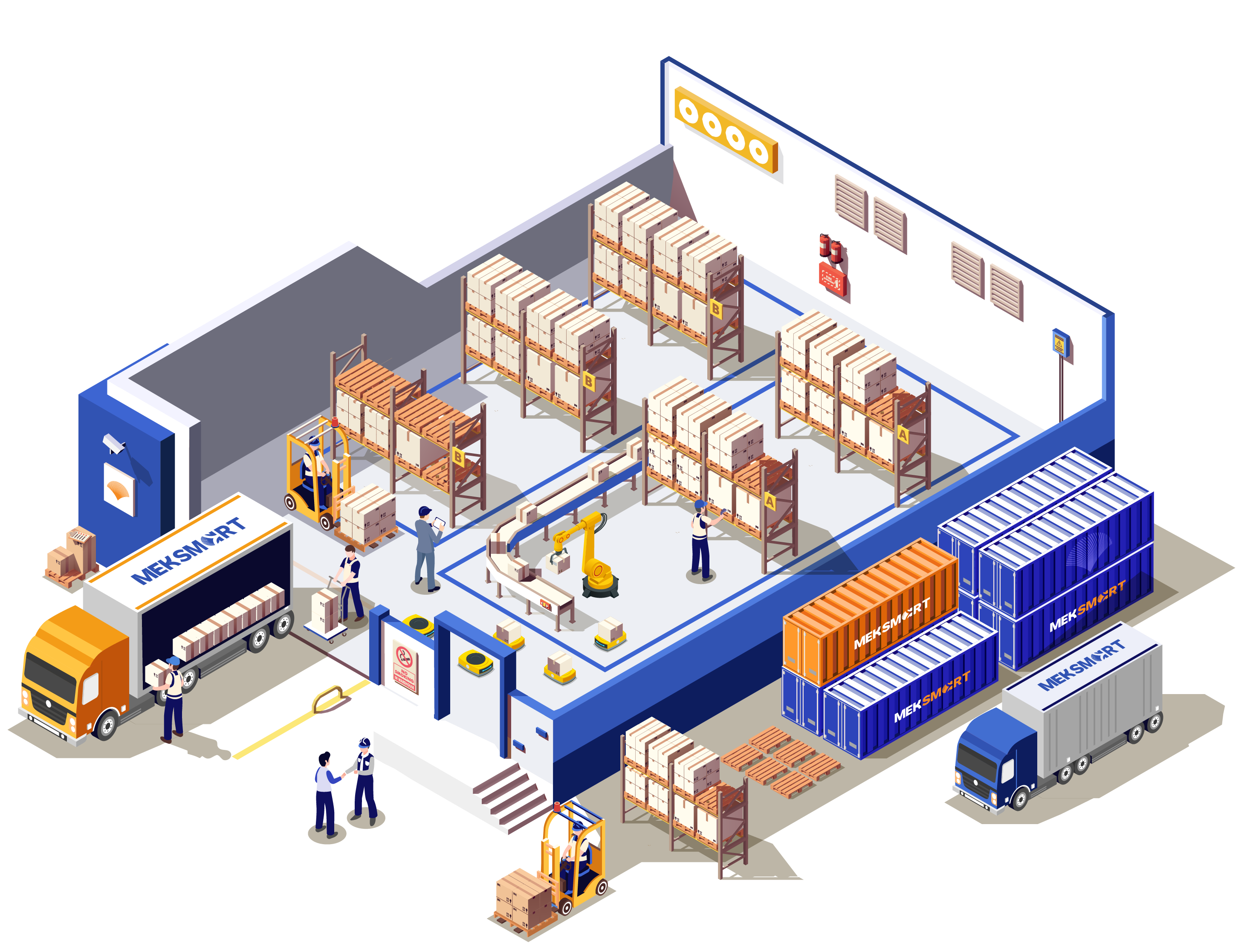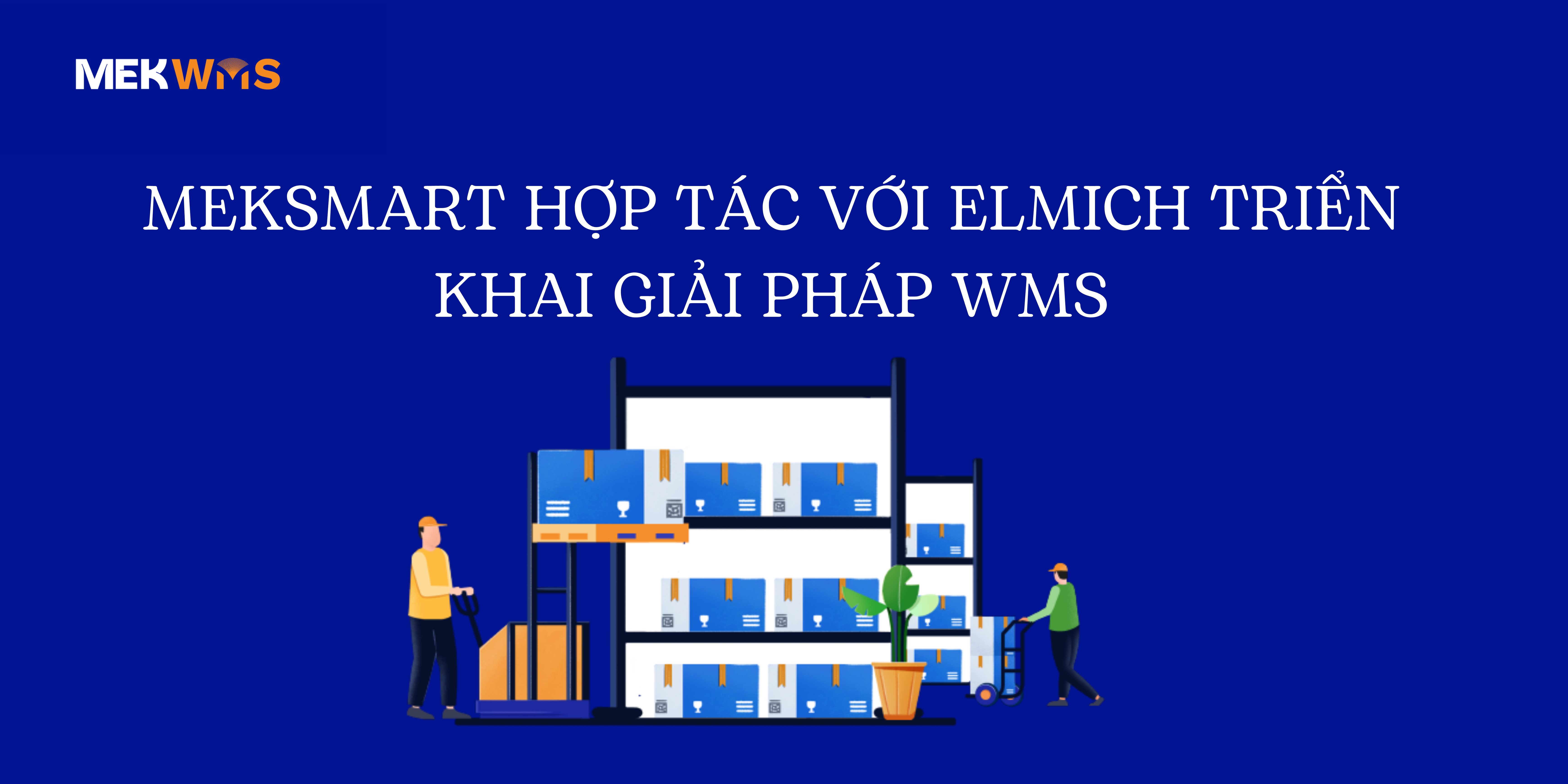MEKSMART
GENERAL NEWS
Author:
Update: 30/11/2022
COMPLETE THE LOGISTICS SERVICE CHAIN FOR AGRICULTURE PRODUCTS OF THE CUU LONG RIVER
The Mekong Delta region has many potentials and advantages for development. At the same time, it is one of the largest and most fertile plains of Vietnam and Southeast Asia.
On May 26, in Can Tho city, the Vietnam Logistics Association (VLA), Vietnam Federation of Trade and Industry Can Tho branch (VCCI Can Tho) and Business Forum Magazine organized a forum "Improving the logistics service chain for agricultural products in the Mekong Delta".
The forum had the participation of Nguyen Thanh Phong, Deputy Head of the Central Economic Commission and leaders of central ministries and branches, leaders of 13 provinces and cities in the Mekong Delta, leaders of industry associations. , leading logistics enterprises, as well as large agricultural enterprises of the Mekong Delta...
Logistic bottlenecks
- The Mekong Delta region has many potentials and advantages for development. At the same time, it is one of the largest and most fertile plains of Vietnam and Southeast Asia.
- Along with that, this region is the largest production and export area of food, foodstuffs, aquatic products, and fruits of the whole country; contributes about 50% of rice production, 95% of rice exports, nearly 65% of aquaculture production, 60% of fish exports and nearly 70% of fruits of the whole country.
- The Mekong Delta is also an area with a system of interlaced rivers, canals, and gardens. Agricultural products are the main traditional products of the Mekong Delta. According to research by the World Bank (WB), every year, the Mekong Delta has the need to transport imported and exported goods about 18 million tons. However, in fact, the Mekong Delta is the region with the highest logistics costs, accounting for 30% of product costs, contradicting the region's contribution to goods.
- The main cause of this bottleneck is assessed by experts as the lack of linkage and synchronization in the logistics system in the Mekong Delta; in which, the seaport system is still lacking, especially deep-water ports for ships transporting export containers.
- According to Associate Professor - Dr. Ho Thi Thu Hoa, Director of the Vietnam Logistics Research and Development Institute (VLI), although, the Mekong Delta has all kinds of transportation by river, sea and road. Although the system for logistics in this area lacks synchronous connectivity, the infrastructure does not meet actual needs.
- Currently, the Mekong Delta has no large-scale seaports, mainly small river ports, lacking deep-water ports for ships transporting export containers. The system of canals is dense, but the characteristics of different channels lead to inland waterway transport with limited means of transport, not being able to use the maximum allowable load. The barges also cannot transport the maximum allowable load due to the limitation of the static height of the bridges serving road traffic, the tonnage of the barge is only between 1,500-3,500 tons.
- In addition, the Mekong Delta region still lacks key logistics centers and satellite systems, lacks empty container yards, warehouse systems at ports, and food safety inspection units. , standard irradiation...
- According to the statistics of the Vietnam Logistics Service Association (VLA), 13 provinces in the Delta currently have only 1,461 logistics service providers, accounting for about 4.39% of the number of logistics enterprises in the country; In which, enterprises providing professional logistics services are very limited, mainly agricultural enterprises, especially agricultural enterprises that provide logistics infrastructure for their products, which increases costs. costs for businesses, reducing the competitiveness of agricultural products in the Mekong Delta in particular and Vietnamese agricultural products in general.
- Due to the "bottlenecks" of logistics, the export goods of the Mekong Delta are mainly transited through Eastern ports such as Cat Lai (Ho Chi Minh City), and Cai Mep-Thi Vai (Ba Ria province). -Vung Tau)... leading to increased service charges, warehousing, and waiting time, affecting the competitiveness of agricultural products in the Mekong Delta in particular and Vietnamese agricultural products in general.
- According to Mr. Pham Tan Cong, Chairman of the Vietnam Federation of Trade and Industry, the above limitations make the logistics market in the Mekong Delta lack the attractiveness and competition of service providers. professionally. Although the Mekong Delta is a major center of agricultural production in the country, logistics services for agricultural products are a bottleneck impeding the region's economic growth. this knot
It is necessary to develop the logistics chain
- Deputy Head of the Central Economic Commission Nguyen Thanh Phong said that the appearance of rice seeds, mangoes, and grapefruits... of the Mekong Delta on the shelves of major supermarkets around the world is a great The first brand ambassador for Vietnamese products to penetrate the world market. Expanding the presence of products in the Mekong Delta inevitably requires the development of a logistics system for regional agricultural products in a commensurate manner.
- To develop logistics in the current global competition, it is necessary to build large logistics centers and large logistics enterprises with enough potential to close the logistics ecosystem with end-to-end integrated solutions from transportation. international logistics by sea to domestic logistics with a system of warehousing, customs brokerage, and road transport technology, thereby helping to save costs thanks to scale. Logistics services are not only located in the warehouse, transportation, delivery, and receipt but also include all necessary services to support the production and business processes of businesses and people.
- At the forum, accompanying localities, businesses, and investors to discuss specific solutions to develop the logistics industry in the Mekong Delta in the new period, complete the logistics service chain and connect Investment Opportunities. Logistics businesses and agricultural product exporters share knowledge and information, closely follow market developments, seek specific solutions to attract logistics businesses, and develop the logistics industry for Delta. Mekong River in the new period; reduce logistics costs, and complete the chain of proactive logistics services for agricultural development in this region.
- According to Mr. Tran Thanh Hai, Deputy Director of the Import-Export Department (Ministry of Industry and Trade), it is necessary to complete synchronously the infrastructure for logistics such as promoting investment, and taking advantage of the available advantages of transport modes. Waterway; to renovate and upgrade the main shipping channels in the region. In addition, developing seaports in association with commodity production centers, calling for investment in offshore ports to assume the role of gateway ports, meeting the direct import and export needs of the region. In addition, promoting the development of logistics centers serving agricultural products with key services such as transportation, warehousing, goods preservation, and value-added services.
- Commenting that he wants to cut costs for agricultural products by stably linking goods output and logistics, Mr. Vo Quan Huy, Director of Huy Long An Co., Ltd (Folha) said that focusing on strengthening regional linkages Facilitating trade in agricultural products is an urgent issue to help the region's economy develop faster with its inherent advantages. Accordingly, it is necessary to soon have effective plans, policies, and models, connecting the comprehensive supply chain for Vietnamese agricultural products from production - harvesting to customs clearance - export, towards optimizing costs. logistics costs, increasing competitive advantages for agricultural products, and creating sustainable output for agricultural products.
- It is very necessary to build and develop supply chains and logistics services in the Mekong Delta in the context of global economic integration, in order to connect the transportation of goods from the place of production to the place of fast consumption. least, lower cost. Well-functioning logistics centers will minimize input costs in order to increase the value of goods for key export items of the Mekong Delta.
Source: bnews.vn







